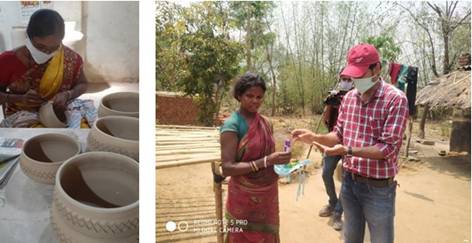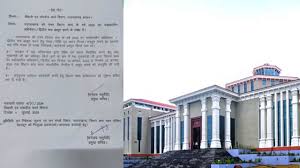DST building resilience of SC & STs against COVID 19 through S&T interventions

The Science for Equity Empowerment and Development (SEED) division of the Department of Science and Technology (DST) is providing grant-in-aid support to several Knowledge Institutions (KIs), and Science and Technology (S&T) based Non-Government Organizations (NGOs) for the holistic development of SC and ST communities to help them tide over the nationwide lockdown that affected livelihood and economic condition of the communities.
The National lockdown had crippled mobility and human contact to an extent that it has presented a unique challenge to effectively respond to the needs of the SC and ST communities at grassroots. Besides, pre-existing challenges related to health, compromised dietary practices, poor affordability, low educational levels, and lack of awareness calls about healthcare and social services pose obstacles to reach relief and rehabilitation measures to the communities.
The support provided to the network of KIs and S&T based NGOs by the SEED division has brought convergence among different stakeholders, especially the NGO network with grassroots presence and knowledge organizations, and they are working closely with these communities for implementing effective response, recovery and resilience strategies.
The network of organizations supported by the SEED Division has demonstrated capabilities in the manufacturing of masks as per the guidelines issued by Office of PSA, Government of India, hand sanitizers as per WHO guidelines, and 3D printed face shields through Fusion Deposition Modelling.
The NGOs and KIs supported by DST are proving dry ration and hot cooked meals, Personal Protective Equipment (PPE), helping in the development of innovative tools and techniques and designing a framework for protecting the existing livelihoods and creating alternate livelihood options in far-flung areas in the States of Andhra Pradesh, Haryana, Himachal Pradesh, Kerala, Maharashtra, Manipur, Odisha, Rajasthan, Tamil Nadu, Tripura, Uttarakhand, Telangana, and West Bengal. The network has approximately reached 70,000 SC people and 26,000 ST people in these states.
Relief material has been provided to 60,000 people and sanitizers to 36,000 people. A total of 500 awareness and training programmes covering approximately 35,000 people were conducted, and 56,000 masks were distributed. 25,000 face shields were distributed among the frontline health workers.
The field teams facilitated contact with government trading agencies, private traders, and collection depots to enable collection of NTFPs directly from the Tribals The livelihoods of 12,000 households were protected or augmented with various S&T interventions in agriculture, aquaculture, collection of NTFP and other non-farm activities.
DST Secretary Prof. Ashutosh Sharma, while applauding the efforts by the NGOs and KIs in reaching the most vulnerable sections of the society for containment of COVID-19 said that the usefulness of knowledge at the grassroots depends not only on the availability of relevant information but on its effective dissemination including demonstrations, hand-holding and formulation of actionable SOPs keeping in view the local conditions.






